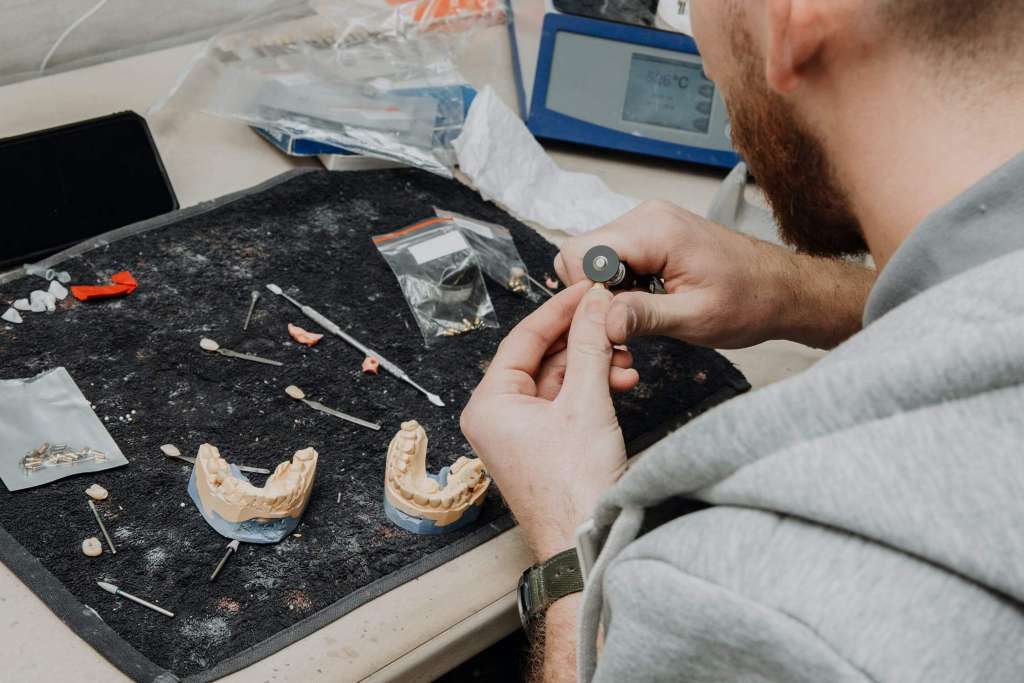Dental implant treatment has grown in popularity dramatically in recent years. Even though people’s dental health is improving, tooth loss remains common. People are living longer lives and expect to be active well past their sixties and into their seventies. One of the expectations for a long and happy retirement is the ability to smile confidently and eat their favourite foods.
Dental implants are a superior, long-term tooth replacement option to crowns, bridges, and dentures. Here are some of the most significant benefits of dental implants offered by Warner dentist.
The Pros of Dental Implants
Dental implants are the next best thing for natural, healthy teeth. If you’ve been thinking about getting an implant or want to learn more about them, we’ve put together a list of the benefits of a dental implant over other alternatives. Dental implants have the following advantages:
Permanent tooth replacement:
Dental implants are made of titanium, which makes them not only very durable but also biocompatible. This allows the jaw to grow new bone around the implant once it is in place, providing a strong foundation and imitating the root of a natural tooth.
The replacement tooth attached to implants can wear out over time and may need to be replaced after several years, but the underlying implant is extremely strong. With proper care, it can last a lifetime.
Natural aesthetics:
Even if an experienced prosthetist can create a natural-looking dental bridge or denture, there may be various problems such as dentures slipping, clicking, shifting out of place, or interfering with your speech. Dental implants provide structural support beneath the gums and provide a more solid and permanent foundation. As a result, with implants, these drawbacks can be avoided.
Most people find that eating and speaking with dental implants feels more natural because the replacement tooth has the same strength, durability, and stability as a healthy natural tooth.
Prevent Bone Loss:
The jaw anchors and supports our teeth, and the teeth also support the jaw. As a result, when a tooth is lost, the bone beneath is no longer stimulated to regenerate and can begin to deteriorate over time.
When multiple teeth are missing, the jaw often begins to shrink, which can cause premature ageing of the face. When a dental implant is surgically placed in the jaw, it not only supports the jaw, but can also stimulate new tissue growth, a process known as implants.

Improved functionality:
When you have traditional dentures or dental bridges, your dentist will usually advise you to avoid certain foods that can cause them to become damaged or loose. This is frequently associated with foods that are rigid, crunchy, or sticky and chewy.
In comparison, the tooth replacement on a dental implant remains in place and will not shift or dislodge, allowing you to enjoy your favourite foods without having to give them up.
Low Maintenance:
To prevent bacteria, dentures should be cleaned daily, removed, and kept in a solution overnight. Dental implants, on the other hand, require the same level of oral hygiene as natural teeth. That is to say:
- Brushing your teeth twice a day, including your prosthetic teeth.
- Flossing daily helps to prevent gum disease by removing trapped food and bacteria between teeth.
- Reduce your sugar intake to reduce your risk of tooth decay.
- Increasing water consumption for hydration while reaping fluoride’s oral health benefits.
- Maintain six monthly dental hygiene appointments to ensure the health of your gums, teeth, and implant.
Types of Dental Implants
That is something you should discuss with an expert dentist Heathwood. When deciding on the material and type of implant, your oral condition is crucial.
It all depends on whether you only need one implant, if you need to replace a bridge with implants, or if you want implant dentures to avoid dealing with loose dentures. Dental implants are classified into four types.
Endosteal Implants
These are the most common dental implant types. They fit perfectly on the jawbone like a screw. Your jawbone and gums, on the other hand, must be healthy and in good condition.
A bone graft may be required in some cases to create a healthy and strong foundation for the implant to be successfully placed. This type of implant requires less time than other implants for the gums to fuse to the post and form a firm foundation.
Sub Periosteal Implants
This is a backup option for patients who do not want to go with the endosteal type. It is more appropriate for some patients with more specific needs.
Subperiosteal implants are an option for patients who do not want (or are not candidates for) Endosteal implants. These implants are designed to be placed on top of the bone rather than inside it. The specialist places a metal frame beneath the gum where the implant will be adjusted for this type of dental implant.
Zygomatic Implants
Zygomatic implants are a third option, but they are not widely used in dentistry today.
They are only used when bone augmentation is not possible due to the complexity of the procedure. Zygomatic implants are placed on the cheekbone rather than the jawbone.
All 4 Implants
These types of dental implants may be appropriate when all teeth are missing due to decay or gum disease. A full arch of teeth is fixed to only four implants with this procedure, though the number of posts may vary from five to six.
There is no need for bone grafting, and the dentist can place temporary teeth on the same day. You must follow a special diet for 6 months before the permanent set is ready for fitting.










